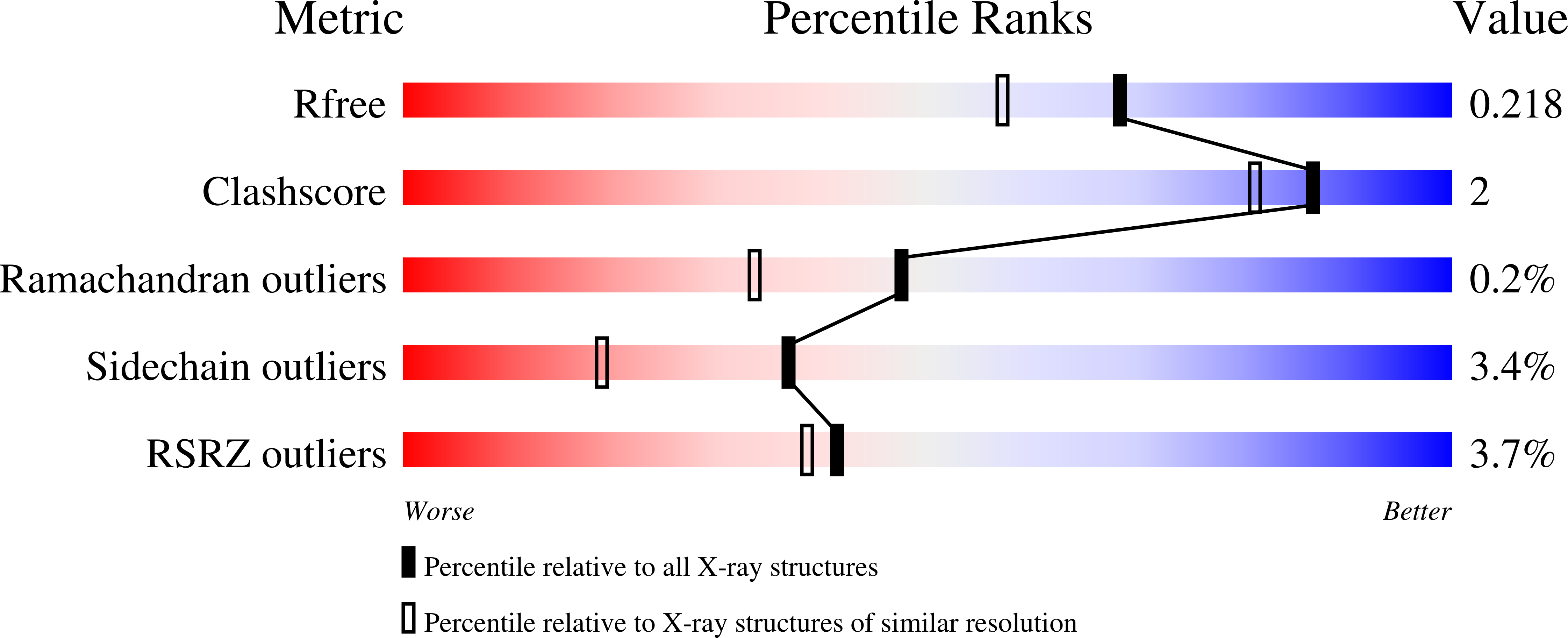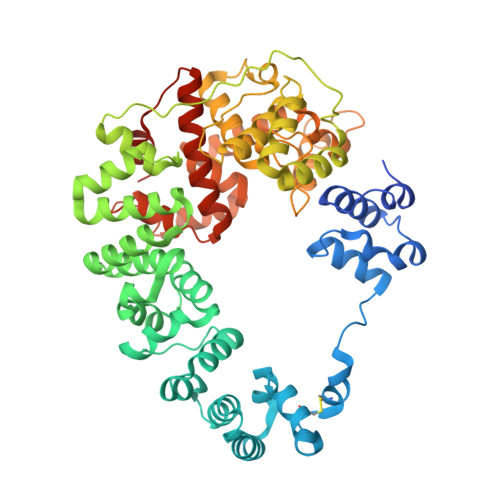Exploring the inhibition of the soluble lytic transglycosylase Cj0843c of Campylobacter jejuni via targeting different sites with different scaffolds.
Kumar, V., Boorman, J., Greenlee, W.J., Zeng, X., Lin, J., van den Akker, F.(2023) Protein Sci 32: e4683-e4683
- PubMed: 37209283
- DOI: https://doi.org/10.1002/pro.4683
- Primary Citation of Related Structures:
8GEZ, 8GF0, 8GF1, 8GFB, 8GFC, 8GFD, 8GFE, 8GFF, 8GFG, 8GFH, 8GFI, 8GFJ, 8GFL, 8GFM, 8GFP, 8GFQ, 8GFS - PubMed Abstract:
Bacterial lytic transglycosylases (LTs) contribute to peptidoglycan cell wall metabolism and are potential drug targets to potentiate β-lactam antibiotics to overcome antibiotic resistance. Since LT inhibitor development is underexplored, we probed 15 N-acetyl-containing heterocycles in a structure-guided fashion for their ability to inhibit and bind to the Campylobacter jejuni LT Cj0843c. Ten GlcNAc analogs were synthesized with substitutions at the C1 position, with two having an additional modification at the C4 or C6 position. Most of the compounds showed weak inhibition of Cj0843c activity. Compounds with alterations at the C4 position, replacing the -OH with a -NH 2 , and C6 position, the addition of a -CH 3 , yielded improved inhibitory efficacy. All 10 GlcNAc analogs were crystallographically analyzed via soaking experiments using Cj0843c crystals and found to bind to the +1 +2 saccharide subsites with one of them additionally binding to the -2 -1 subsite region. We also probed other N-acetyl-containing heterocycles and found that sialidase inhibitors N-acetyl-2,3-dehydro-2-deoxyneuraminic acid and siastatin B inhibited Cj0843c weakly and crystallographically bound to the -2 -1 subsites. Analogs of the former also showed inhibition and crystallographic binding and included zanamivir amine. This latter set of heterocycles positioned their N-acetyl group in the -2 subsite with additional moieties interacting in the -1 subsite. Overall, these results could provide novel opportunities for LT inhibition via exploring different subsites and novel scaffolds. The results also increased our mechanistic understanding of Cj0843c regarding peptidoglycan GlcNAc subsite binding preferences and ligand-dependent modulation of the protonation state of the catalytic E390.
Organizational Affiliation:
Department of Biochemistry, Case Western Reserve University, Cleveland, Ohio, USA.
















